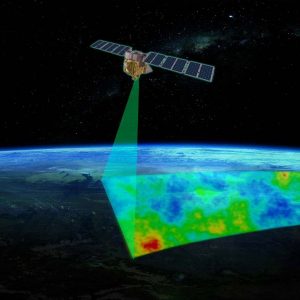OGMP reporting framework offers investors a clear and credible standard to understand and track oil and gas methane emissions
Thanks to a decade of groundbreaking research, methane emissions from oil and gas operations have advanced from a relative afterthought among climate pollutants to an A-list issue in the global climate conversation, as well a widely acknowledged reputational, regulatory and financial liability for the industry.
Major investors are demanding responsible methane action from oil and gas companies. But assessing progress is challenging because of an overall lack of reliable data, and the fact that standards vary widely for the methane accounting that does exist.
Traditional estimates of methane from oil and gas production have been found to underestimate emissions by 60%. In certain oil and gas basins, studies have found emission rates to be more than 10 times higher than industry figures. Despite a growing number of voluntary reduction targets, reporting methods lack standards and transparency, making it virtually impossible to draw meaningful comparisons over time or across companies.
Toward a methane accounting standard
The rigorous reporting framework established by the Oil and Gas Methane Partnership is a groundbreaking effort to solve these challenges, by creating a reliable and transparent standard for measuring and reporting oil and gas industry methane emissions.
OGMP reporting framework offers investors a clear and credible standard to understand and track oil and gas methane emissions Share on XThis week EDF published a guide for investors that outlines more background on the OGMP framework to help investors clearly and credibly demonstrate improvement on ESG issues within their oil and gas portfolio. With over 70 member companies, operators already committed to the framework represent more than 30% of global oil and gas production. Go here to access the guide and learn more about the framework and how investors can track company methane performance progress.
For investors seeking a reliable, robust and transparent reporting standard, the OGMP reporting framework is the clear industry leader. It offers companies a centralized, transparent and standardized reporting protocol for methane reduction performance and allows stakeholders to credibly differentiate industry leaders and laggards. The goal is to guide industry toward deep reductions in methane emissions over the next decade in a way that is visible and accessible to civil society, governments and investors.
Better measurement & reporting
The framework will produce better, cleaner and more trustworthy methane reporting. For example, participating companies commit to regularly measuring their methane emissions using strict science-based standards, as opposed to estimating emissions with generic emission factor-based calculations that have been shown to significantly underestimate actual emissions.
Companies also agree to measure and report all of their emissions across their production assets, including non-operated assets and joint ventures. OGMP’s measurement-based reporting allows investors to compare companies against their targets and peers.
Emissions data from OGMP will be incorporated into the United Nations Environment Programme’s International Methane Emissions Observatory, where it will be aggregated and analyzed with other OGMP member data, commissioned science studies, satellite data and other independent measurement-based data sets. Starting in 2023, OGMP data will be verified by MethaneSAT, which will be the most advanced methane tracking satellite in space, capable of measuring methane emissions anywhere on earth.
For all these reasons, the OGMP framework promises to be the gold standard in oil and gas methane reporting.











